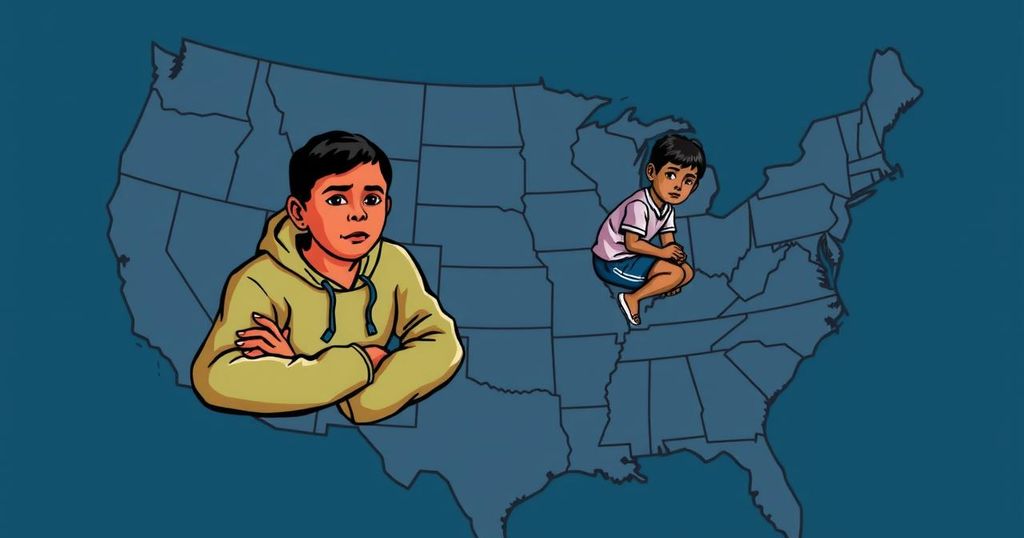Trump’s Election Provokes Fear Among Migrants Amid Supportive U.S. Voter Sentiment

The article discusses the apprehensions of migrants in Mexico following Donald Trump’s election, contrasting it with the supportive views of U.S. voters regarding his stricter immigration policies. Personal accounts illustrate the uncertainty and fear faced by families awaiting entry into the U.S., highlighting the implications of potential policy changes under Trump.
In the aftermath of Donald Trump’s electoral victory, many voters in the United States perceive his reinforced stance on border security as a favorable development. However, this win instills anxiety among migrants, particularly those currently waiting in Mexico for the opportunity to enter the United States. A poignant example is the Castro Santos family, who have been residing in temporary accommodations in Nogales for four months while seeking safety from violence in their native Guerrero, Mexico. This family, like other migrants hailing from various countries in Latin America, hopes to achieve a better life in the U.S. Despite the introduction of a new application system by the Biden administration that permits migrants to schedule appointments for border entry processing, there is a prevalent fear that Trump’s upcoming presidency will reverse these efforts, making the journey to the U.S. significantly more challenging. The sentiments expressed by Ivan Castro Santos reflect these concerns: “We don’t want to run that risk of going back and putting them at risk.” Meanwhile, Anna Parada, a resident just miles from the border, articulated her support for Trump, attributing her vote to a belief that the Biden administration was too lenient on immigration. Conversely, Luz Angela, a Bolivian migrant, conveyed her alarm following Trump’s election, fearing for her family’s future in light of his commitments to deport migrants and potentially eliminate the appointment scheduling app used by many looking to enter the U.S. Angela, who has been awaiting her appointment for nearly seven months alongside her son, articulated her aspirations: “What we’re looking for is for an opportunity to improve our lives.” U.S. authorities are increasingly concerned that Trump’s victory could reignite illegal border crossings due to heightened desperation among migrants unwilling to risk losing their opportunity to enter the country. Alba Jaramillo, an immigration attorney, voiced that the potential suspension of the appointment system might drive more individuals to cross the border unlawfully, often through perilous routes. In essence, the contrasting reactions of voters and migrants to Trump’s election highlight the complex and often fraught nature of migration policies in the U.S.
The article explores the complex dynamics surrounding immigration in the wake of Donald Trump’s electoral triumphant, particularly focusing on the experiences and concerns of migrants in Mexico. Due to fears around stricter immigration laws and policies that may be reinstated or reinforced under Trump’s leadership, many migrants are left uncertain about their futures. The narrative details the struggles of families like the Castro Santos family, who have fled violence in their home countries and now grapple with the uncertainty of U.S. immigration policy. Furthermore, the article provides insights from immigration experts about potential ramifications of changing policies, including the possible increase in illegal crossings as migrants perceive a shrinking window of opportunity.
In summary, while many voters in the U.S. support Trump’s strict immigration policies, these measures elicit fear and anxiety among migrants seeking safety and stability in America. The article shares the personal stories of individuals awaiting entry into the U.S. as they confront the possibility of heightened restrictions under a Trump administration. As sentiments on both sides of the border reveal contrasting perspectives, the future of immigration policy remains uncertain, amplifying the urgency for those seeking refuge or better opportunities in the United States.
Original Source: www.cbsnews.com




